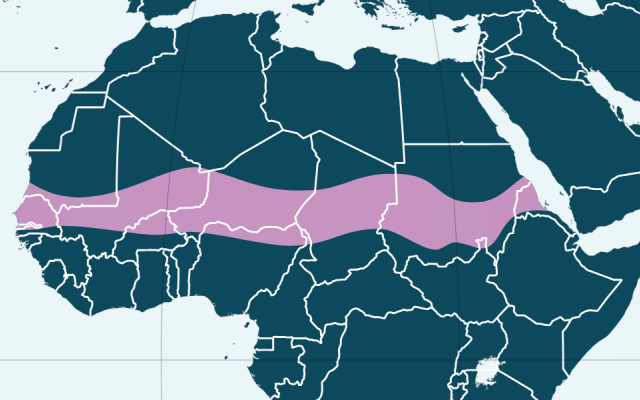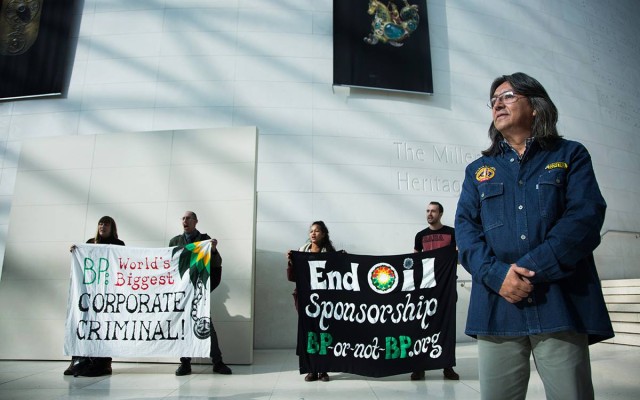
Liberalism, Fascism and the Politics of Rights
(Or: Corporate Attempts to Obliterate Democracy, and Law as Terrain of Struggle)
Published on: April 2nd, 2025
Read time: 14 mins
The Independent Social Research Foundation’s recent conference, Migration and Democracy in a time of Climate Crisis, raised three issues that are increasingly entangled. In a context of spiralling inequality and declining class consciousness, the far right has fostered and thrived upon fears of societal breakdown. With brutal racist nationalisms now pervading even the more centrist political parties, and climate breakdown escalating forced displacement around the world, more and more people have become targets of authoritarian crackdowns on migration. Meanwhile, unprecedented levels of Western complicity in the genocide in Gaza had, by early 2024, led to warnings of the disintegration of the ‘rules-based international order’. ‘It is as if the grave moral lessons of the Holocaust, of World War II, have been all but forgotten, and with them, the very core of the decades old ‘Never Again’ principle: its absolute universality, the notion that it protects us all or none of us’, Agnès Callamard wrote in Foreign Affairs last year. ‘This disintegration, so apparent in the destruction of Gaza and the West’s response to it’, Callamard continued, ‘signals the end of the rules-based order and the start of a new era’. Agnès Callamard, ‘Gaza and the End of the Rules-Based Order’, Foreign Affairs, 15 February 2024. Online here. Such warnings now seem to have reached their apotheosis with the second Trump administration in the United States.
Amid laments for liberal democracy and the ‘rules-based order’, it is easy to embrace liberal institutions and liberal languages of rights. Yet liberalism, even at its height, co-existed comfortably with imperial plunder and authoritarian rule. As thinkers from Aimé Césaire to Hannah Arendt emphasised, the fascism that came to Europe in the first part of the twentieth century had its antecedents in European colonialism. So too were the horrors of the Third Reich deeply influenced by the Jim Crow laws in the United States that denied rights to those with Black and Indigenous heritage and segregated them from white US citizens. Now, with the dramatic neo-fascist turn in the United States, acknowledgment of this history has led some to insist that any attempt to resist via the defence of liberal rights is doomed to complicity with the structural forces of oppression.
I want to suggest in this article that both those embracing liberal rights and those rejecting rights as means of resistance tend to overlook the more recent roots of the resurgence of fascism: the corporate capture of democracy in the latter part of the 20th century. The prevailing focus on the rise of the far right—even when combined with analysis of historical relations between liberalism, colonialism and fascism—obscures the more recent history of dispossession upon which the far right has thrived. What is then excluded from scrutiny is how, over the past few decades, any democratic initiative against the interests of multinational capital has been quietly but effectively outlawed via the redesign of international law by corporate elites. I discuss this recent history at length in Struggles for the Human: Violent Legality and the Politics of Rights (Durham, NC 2024: Duke University Press), chapter 1. Recognition of this, and the fact that those same corporate elites are now planning for profitability in the face of apocalyptic levels of global warming, See David Whyte, Ecocide: Kill the Corporation Before It Kills Us (Manchester 2020: Manchester University Press). has major implications for how we think about rights, resistance and the ‘rules-based international order’ in the face of fascist resurgence.
II
The ‘rules-based order’ is in fact relatively new terminology, popularised by Western politicians in the 2000s. It has been used to refer not only to the international human rights system and the ‘decades old “Never Again” principle’ but also to a redefinition of international ‘rule of law’ that, with the founding of the World Trade Organization in 1995, made the rights of property and investment sacrosanct. Even the establishment of the International Criminal Court in 2002 was part of a wider embrace of the principle of access to courts across frontiers that was part of this agenda. Christine Schwöbel-Patel, Marketing Global Justice: The Political Economy of International Criminal Law (Cambridge 2022: Cambridge University Press), 85-89, 181-185. In summary, the ‘rules-based order’ emerged as a shorthand for the rules required to enforce the tyranny of corporations, although an easy slippage in meaning enabled it to simultaneously gain connotations of universal human rights.
Prior to the foundation of the World Trade Organization, international financial institutions had already begun to redefine ‘rule of law’ as a ‘neutral’ means of ensuring growth that in reality implied ‘harsh control of any individual threatening the bottom line of property rights’. Ugo Mattei and Laura Nader, Plunder: When the Rule of Law is illegal (Malden, MA 2008: Basil Blackwell), 47. Whereas, previously, World Bank and International Monetary Fund (IMF) interventions in countries’ legal systems would have been considered illicit political interference, the redefinition of law as neutral and technical enabled a crucial shift. It became commonplace for aid to be conditioned on domestic legal reform, while corporations became de facto legislators through lobbying and consultancy. Democratic demands for alternatives to deregulation, privatisation and relentless pursuit of foreign direct investment were, in effect, blocked by the law itself. Combined with existing mechanisms such as Investor-State Dispute Settlement, established after the Second World War to limit the autonomy of decolonising nations, the result was skyrocketing levels of inequality and intensified dynamics of plunder, alongside authoritarian repression of those who sought to defend land and public services.
This profoundly anti-democratic conception of ‘rule of law’ has also had an important role to play in Europe’s authoritarian drift. EU policy had already set the stage for the legal entrenchment of austerity measures when the 2010 Greek financial crisis hit. In exchange for a bailout package, the EU and IMF imposed strict conditions on Greece, reflecting a commitment to prioritising fiscal responsibility and labour market deregulation over public welfare, while the EU introduced stricter ‘economic governance’ regulations designed to pre-emptively enforce similar measures in other member states. By 2015, the President of the European Commission could declare that the Greek government under the political party Syriza would be unable to implement its economic programme, because ‘there can be no democratic choice against the European treaties’. Britain, notwithstanding its 2020 exit from the EU, also has a track record of using legal targets to tie its own hands and subordinate national democratic choices to the goals of economic governance in the interests of monopolistic corporations. Robert Knox, ‘Legalising the Violence of Austerity’, in, The Violence of Austerity, edited by Vickie Cooper and David Whyte (London 2017: Pluto Press), 181-184.
Much has been written about how austerity paved the way for the far right in Europe, as well as the United States. Yet it is vital not to downplay the significance of this legal entrenchment of the power of corporations. Indeed, the corporation itself is a legal construct, defined by principles of separate corporate personhood and limited liability of shareholders and bosses, that was ‘designed to dehumanise social relationships and guarantee indifference to human suffering and environmental degradation’. Whyte, Ecocide, 65. To focus on the visibly authoritarian, indeed fascistic, aspects of former liberal democracies is to miss these deeper, structural underpinnings of the present crisis. In continuity with long historical relations between liberalism, fascism and colonialism, the ‘silent coup’ by corporate power began as an attempt to preserve a colonial international division of labour in the wake of decolonisation. See Matt Kennard and Claire Provost, Silent Coup: How Corporations Overthrew Democracy (London 2023: Bloomsbury). With it, however, colonial-style relations of expropriation have boomeranged back into liberalism’s historical strongholds.
III
None of these phenomena are aberrations of liberalism but expressions of a perpetually present underside. Liberalism may proclaim itself as the doctrine of freedom and equality but, as Karl Marx observed in On the Jewish Question, these liberal principles embody a different vision of humanity and different moral reference points to the capitalist order within which they are asserted. Liberal thinkers have tended to circumvent this contradiction by distinguishing the criteria for moral action from those for economic action. Adam Smith’s moral philosophy, for example, was worked out in perpetual tension with his political economy, which made clear that societies must not only exercise the right to kill to generate terror of punishment for crimes against property, but also ‘the market … must necessarily at certain precise moments, “let die”’. Warren Montag, ‘Necro-economics: Adam Smith and death in the life of the universal’, Radical Philosophy 134 (2005). Online here. Smith could only oppose slavery because his moral sentiments coincided with his economic reasoning on the matter: slavery was not only inhumane but also inefficient.
The fact that the idea of a ‘rules-based order’ is used to refer both to the institutions of liberal internationalism and to a regime of international economic law that implies systematic plunder and dispossession also reflects this contradiction. The idea of ‘rule of law’ itself has been shaped within the poles of two distinct constellations of meaning. From one direction, the ‘rule of law’ has been conceived as a protection against tyranny, the idea that all are equal under the law, which has been taken up in struggles against arbitrary power and colonial rule and reasserted in the ‘Never Again’ that became a rallying cry of 20th-century human rights advocates. From another direction, however, with an equally secure foothold in liberal thought, the ‘rule of law’ refers to institutions that protect property rights and rights to accumulation. Mattei and Nader, Plunder, 14-15.
What is perhaps surprising is that, at the very moment that international ‘rule of law’ was redefined in the service of corporate power, corporations came to profess concern with human rights. However, as I discuss in my recent book Struggles for the Human, the result was not a revival of the old tension in liberal thought between ethics and economics but the collapse of that tension via a ‘privatisation of human rights’ that recast the very meaning of what it is to hold rights. Instead of being conceived as limits on what could be done in the service of property and profit, human rights became abstract add-ons to plunder, dispossession and the tyranny of corporate power. Alongside other cosmopolitan values, rights became part of a widespread ethical newspeak that served not only to conceal but to reinforce what were already deeply fascistic tendencies.
In Colombia, where I was based during much of the work for Struggles for the Human, even corporate-backed massacres and selective killings of people occupying land targeted for resource extraction have been accompanied by the language of human rights. Indeed, this phenomenon had become so pronounced by the early 2000s that poets Humberto Cárdenas and Álvaro Marín referred to it as ‘defending life by sowing death’.
IV
It is in this light that I want to consider the value of appeals to liberal discourses of human rights. In doing so, I do not seek to downplay the need for radical alternatives to existing legal and political economic systems, or the extent to which these need to be informed by ethics of care, mutual aid and harmony with nature, as well as militant class struggle. Yet one of the concerns that motivated Struggles for the Human was how liberatory politics are routinely undermined by what I call ‘pernicious optimism’: attachment to the fantasy that this or that vision of change is going to somehow make things different. Optimistic attachments, in Lauren Berlant’s well-known theorisation, have a particular sort of affective structure: ‘a sustaining inclination to return to the scene of fantasy that enables you to expect that this time, nearness to this thing will help you or a world to become different in just the right way’. Lauren Berlant, Cruel Optimism (Durham 2011: Duke University Press), 2. There, I considered this particularly in relation to the ‘feel good’ ethics of much liberal cosmopolitan intervention which, by recasting rights as abstract values to be tacked on to what already exists, can consolidate necro-economics. However, at the present juncture, it is important to emphasise that the risk of pernicious optimism is also attendant on much would-be radical thinking. We need systemic transformation but, without concrete intervention to dismantle the legal structures at the heart of the present crisis, mutual aid becomes palliative care, while supposed ‘alternatives’ become add-ons to more of the same.
Law is sometimes treated as if it were itself an add-on, part of the superstructure, a means through which capitalist relations are regulated and remedy sought for infractions. Yet, law is constitutive of capitalist relations at a far deeper level. Schwöbel-Patel makes a similar point in relation to how the prevailing model of ‘green’ energy transition replicates destructive patterns of extractivism. Law, she writes, ‘acts as a network of pipelines laid at the frontiers of value extraction, which enable the smooth transit, accumulation, and concentration of capital’. Christine Schwöbel-Patel, ‘Legal Pipelines of the Green Transition: What Remains the Same’, CRASSH blog, 11 October 2023. Online here. This ‘legal pipeline’ itself must be dismantled—for example via means to restrict the scope of corporate activities and to radically limit the ability of capital to reproduce itself. See Whyte’s proposals along these lines in Ecocide, 167-169. It is difficult to see how any of this might be achieved without the use of law and legal argument—including liberal principles of rights.
In this regard, there is much to be learnt from movements who have long histories of using law against capital, in full awareness of the violence of the law. I discuss in Struggles for the Human how trade union, peasant, Black and Indigenous organisations in Colombia use legal argument to expose irreconcilable contradictions between principles of human rights and the legal underpinnings of economic order. These struggles invoke discourses of rights in a country with a strong liberal tradition that has existed in continuous historical tension with far-right repression and fascistic state tendencies. However, they do not invoke rights in a way that is affirmative of liberal ideology or which takes liberal democracy as a horizon. The parameters of these struggles are profoundly anti-colonial, keenly aware of the imbrications of liberalism with imperialism and fascism, in a context in which liberal concepts hold widespread salience.
Popular tribunals such as the Permanent Peoples’ Tribunal have been the most visible sites of these strategies. For instance, tribunals have used legal argument to hold state officials and corporate executives to account for the genocidal consequences of their actions, and to denounce the international rule of law itself for placing private economic interests above people’s dignity and rights. These initiatives have deep ties to movements pursuing radically alternative political economies, based on the explicit rejection not only of capitalism but of the entire conception of the human that underpins the liberal discourse of rights. Yet these movements too mobilise rights in direct opposition to state-corporate strategies of dispossession and an economic model that threatens ecological catastrophe.
If there is an element of liberalism at play in these appeals to rights, it is a liberalism of the cracks, of defence against tyranny and limits on power, as a means of creating space for something radically different. It is, perhaps, not far off Judith Shklar’s ‘liberalism of fear’: a sceptical stance toward liberal optimism and liberalism’s claims to represent the common good that is instead oriented towards the avoidance of cruelty. In their strategic mobilisation of liberal concepts, these movements also highlight the need to address the economic cruelty that, through the legalised tyranny of corporate capitalism, has condemned so many to misery and death. It is this corporate tyranny which now threatens, not only any version of democracy, but also our planetary survival.
See also...
Feature image: the second Russell tribunal held in Rome, 1974-76. Via Flickr (CC BY-NC 2.0).
Bulletin posts represent the views of the author(s) and not those of the ISRF.
Unless stated otherwise, all posts are licensed under a CC BY-ND 4.0 license.


